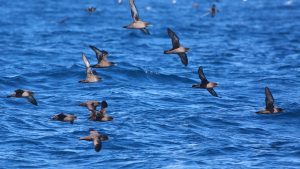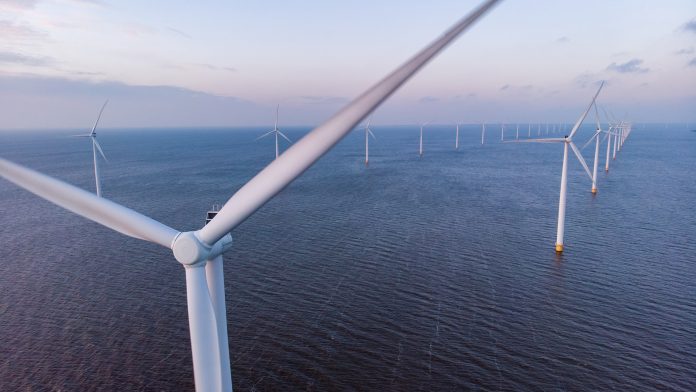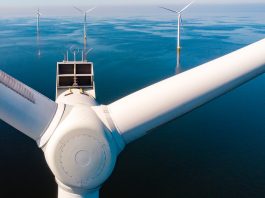A new study is set to explore the impacts of offshore wind farms on seabird populations, ensuring the UK is on a nature-positive track to meet net-zero goals.
Starting in November, the three-year study is set to analyse the impacts of offshore wind farms on UK seabird populations. Specifically, the team will examine the interactions between offshore wind farms and Manx shearwaters and European storm petrels. These are two species of petrel from the Procellariiform order of seabirds.
The research, Procellariiform Behaviour and Demographics (ProcBe), will be led by the Joint Nature Conservation Committee (JNCC) with experts from the University of Gloucestershire, the RSPB, and the University of Oxford.
Relatively little is known about the at-sea behaviour of petrels
How petrels interact with offshore wind farms is a new focus for this research. This is because, in comparison with other species, little is known about their flight height, flight speed, and nocturnal activity at sea.
ProcBe aims to fill the knowledge gaps through a combination of strategic tracking of seabirds, behavioural observations, and population modelling. Through these methods, they aim to reveal how Manx shearwaters and European storm petrels might be affected by offshore wind farms.
Four projects to improve the understanding of the impacts of offshore wind farms
The ProcBe project is among four new projects launched through the Offshore Wind Evidence and Change (OWEC) programme. The OWEC programme is a unique £50m initiative that enables the gathering of evidence to support the development of UK offshore wind farms.

© shutterstock/Lei Zhu NZ
The four projects are set to gather data to improve the understanding of the impacts of offshore wind on UK marine wildlife. The projects will ensure that the developments can provide long-term biodiversity gain, whilst also assisting the UK to reach their net zero by 2050 goals.
ProcBe is a crucial step to protecting the UK’s seabird population
Dr Matt Wood, Senior Lecturer and Postgraduate Research Lead, will lead the project at the University of Gloucestershire.
Dr Wood said: “This project helps put the UK on a nature-positive track to net zero. Seabirds can collide with offshore wind turbines, but we don’t yet know how petrels behave around them.
“Once our colleagues find out the flight heights and speed of Manx shearwaters and European storm petrels, we’ll get to work on population modelling to assess how risky it would be to put offshore turbines in their path.
“We all want green energy and healthy seabird populations, so we need to build wind farms in the right places and design turbines in the right way.
“This project with JNCC, the RSPB, and the University of Oxford is a crucial step to protecting the UK’s internationally-important seabird populations alongside new offshore wind farms.”
Dave Stone, Chief Scientist at JNCC, said: “JNCC is thrilled to be leading this exciting project that has the potential to make significant advances in our understanding of some of the UK’s most important seabirds.
“The interactions between Procellariiform species (shearwaters and storm-petrels) and offshore wind developments are poorly understood, therefore addressing critical knowledge gaps should help the UK to meet its dual ambitions for achieving net zero and nature recovery.”









